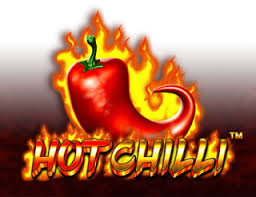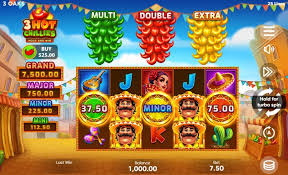


Table of Contents
Introduction
Introducing “Hot Chili Games” conjures up a playful and spicy realm where entertainment meets a dash of thrill. These games, inspired by the fiery allure of chili peppers, blend fun, competition, and sometimes a hint of daring. From chili-eating contests that test participants’ tolerance for heat to cooking challenges that showcase culinary creativity with spicy ingredients, hot chili games bring together enthusiasts eager to embrace the exhilarating sensations and flavors associated with chili peppers.
Beyond physical challenges, digital platforms and board games have also embraced the theme, offering virtual spice-filled adventures and strategic gameplay centered around chili cultivation, cooking, or even navigating daring quests in chili-rich landscapes. Whether you’re a culinary daredevil, a strategist, or simply curious about the world of chili peppers, these games invite you to explore, engage, and savor the vibrant spirit that defines the world of hot chili games.

What is the Hot Chili Games?
Here are some common examples of “Hot Chili Games”:
- Chili Eating Contests: Participants compete to see who can consume the most or the hottest chili peppers within a given time limit. These contests often attract daring individuals who enjoy pushing their limits with spicy foods.
- Spicy Food Challenges: Challenges where contestants eat dishes made with extremely hot chili peppers, such as spicy wings, burgers, or noodles. The goal is to finish the dish despite its intense heat.
- Cooking Competitions: Culinary contests where chefs or amateurs prepare dishes using chili peppers as a prominent ingredient. Judges evaluate the creativity, taste, and use of chili peppers in the dishes.
- Online Challenges: Social media and online platforms sometimes host challenges where participants film themselves eating or preparing spicy dishes and share their experiences with a wider audience.
While these activities are primarily about enjoyment, they also highlight the cultural and culinary significance of chili peppers, as well as the thrill and excitement that comes with handling intense spiciness.
Payment Methods – Banking Options & E-Wallets
Here are the key details on withdrawals:
| Method | Minimum | Maximum | Processing Time | Fee |
|---|---|---|---|---|
| E-wallet | ₱100 | ₱50,000 | 1-3 Hours | None |
| Online Banking | ₱500 | ₱100,000 | 1-3 Business Days | ₱100 fee per transfer |
| Bank Transfer | ₱1,000 | ₱250,000 | 3-5 Business Days | 1% fee on amount |
Login
| Step | Action |
|---|---|
| 1. Visit | Go to the Hot Chili Games website or app |
| 2. Enter | Input your username and password |
| 3. Secure | Use two-factor authentication |
| 4. Access | Enter into the gaming world |
Mechanics of Hot Chili Games
The mechanics of “Hot Chili Games” can vary widely depending on the specific type of game being played. Here are some common mechanics you might encounter in different contexts of hot chili games:
- Chili Eating Contests:
- Endurance: Participants compete to see who can withstand the heat of increasingly spicy chili peppers for the longest duration.
- Scoring: Contestants might earn points based on the number of peppers eaten or their ability to handle spicier varieties.
- Spicy Food Challenges:
- Time Trials: Competitors race against the clock to finish a dish made with spicy chili peppers.
- Scoville Scale: Some challenges might involve dishes rated on the Scoville scale, which measures the heat of chili peppers, with contestants aiming for higher levels.
- Cooking Competitions:
- Creativity: Chefs or contestants are judged on their innovative use of chili peppers in creating flavorful dishes.
- Taste Testing: Judges evaluate the taste, presentation, and balance of flavors, including the incorporation of chili peppers.
- Online Challenges:
- Social Media Engagement: Participants film themselves completing spicy food challenges or cooking with chili peppers, sharing their experiences and inviting interaction from viewers.
- Community Voting: Some challenges involve online voting to determine winners based on popularity or creativity.
- Board Games or Video Games (if applicable):
- Strategy: Games might involve strategic decision-making, such as cultivating chili plants, managing resources, or navigating challenges in a chili-themed environment.
- Competition: Players could compete against each other to achieve specific objectives related to chili farming, cooking, or overcoming spicy obstacles.
Overall, the mechanics of Hot Chili Games emphasize elements of endurance, strategy, creativity, and sometimes social engagement. Whether in real-life contests, cooking competitions, or digital platforms, these games celebrate the love of spicy foods and the excitement of pushing culinary boundaries.
Game Register & Login
Register
| Step | Action |
|---|---|
| 1. Visit | Go to the PokerStars website or app |
| 2. Sign Up | Fill in your details |
| 3. Confirm | Verify your email or SMS |
| 4. Deposit | Make your first deposit |
Login
| Step | Action |
|---|---|
| 1. Visit | Go to the PokerStars website or app |
| 2. Enter | Input your username and password |
| 3. Secure | Use two-factor authentication |
| 4. Access | Enter into the gaming world |
Payment Methods – Banking Options & E-Wallets
Deposit Process
| Method | Steps |
|---|---|
| Bank Transfer | Choose bank, enter details, confirm |
| E-wallet | Select e-wallet, enter amount, confirm |

Rules And Regulation
Rules and regulations for Hot Chili Games, particularly in organized contests or competitions, are important to ensure fairness, safety, and enjoyment for participants. Here are some typical considerations:
- Participant Eligibility:
- Age Restrictions: Contests may specify minimum age requirements for participants, often requiring individuals to be adults due to the potential health risks associated with consuming extremely spicy foods.
- Health Checks: Some contests might require participants to sign waivers acknowledging the risks of consuming hot chili peppers and confirming their good health.
- Safety Precautions:
- Health Guidelines: Contest organizers may provide guidelines on how to safely participate, including recommendations for eating or handling spicy foods to minimize health risks such as gastrointestinal issues or allergic reactions.
- Emergency Procedures: Contests often have protocols in place for handling medical emergencies, such as having medical professionals on-site or access to emergency services if needed.
- Scoring and Judging Criteria:
- Scoville Scale: In spicy food challenges, the heat level of dishes may be measured using the Scoville scale. Judges or organizers might specify minimum heat thresholds or maximum tolerable levels for dishes.
- Taste and Creativity: In cooking competitions, judges typically evaluate dishes based on taste, presentation, creativity, and the skillful use of chili peppers.
- Fair Play and Sportsmanship:
- Rules Enforcement: Organizers ensure that all participants adhere to the rules and guidelines of the contest. Cheating, such as using external substances to mitigate heat or falsifying results, is typically prohibited.
- Respectful Behavior: Participants are expected to show respect for organizers, judges, fellow competitors, and the audience. Unsportsmanlike conduct can lead to disqualification.
- Prize and Awards:
- Award Criteria: Contests often outline the criteria for winning prizes or awards, which may include the number of peppers eaten, the level of heat endured, or the quality of dishes prepared.
- Transparency: Organizers should be transparent about how winners are determined and ensure that prizes are awarded fairly and promptly.
- Liability and Legal Considerations:
- Waivers and Releases: Participants may be required to sign waivers releasing organizers from liability for injuries or health issues related to participation in the contest.
- Compliance: Contests must comply with local laws and regulations regarding food safety, public events, and any permits or licenses required for organizing such competitions.
- Ethical Considerations:
- Ethical Guidelines: Organizers should uphold ethical standards, ensuring that contests do not encourage risky behavior or exploitation of participants.
- Health Education: Some contests include educational components about safe handling and consumption of spicy foods to promote responsible participation.
These rules and regulations are designed to create a fun and safe environment for participants and spectators alike, while also respecting the cultural and culinary significance of hot chili games. Organizers play a crucial role in ensuring that contests are conducted responsibly and ethically.
Conclusion
In conclusion, hot chili games embody a spirited fusion of culinary passion, competitive zest, and cultural appreciation for spicy flavors. These games, whether through eating contests, cooking challenges, or digital platforms, celebrate the thrill of embracing and navigating the intense heat of chili peppers.
Through structured rules and regulations, organizers ensure that these games promote safety, fairness, and enjoyable participation. Participants test their limits, showcasing resilience and creativity in their approaches to handling and incorporating chili peppers into dishes. Such games not only entertain but also educate about the diverse uses and health considerations of spicy foods.
You May Also Want:
- Dark Gold 777
- The SLOTSLV: FREE 180 EVERYDAY PLAY NOW!
- Cgebet Online Casino
- GGBet Online Casino
- PCSO E-Lotto
- Laro88 Casino
- BetKFC
- kaswerte
- 99Fortune
- Milyo88
- Milyon88cc Bingo
- Milyon88cc Fishing Game
- Milyon88cc Casino
- Milyon88cc News
- Milyon88cc Uaap
- Milyon88cc tekken
- Milyon88cc disclaimer
- Milyon88cc elotto faqs
- Milyon88cc bendito casino
- Milyon88cc Mpl PH
- Milyon888
Leave a Reply